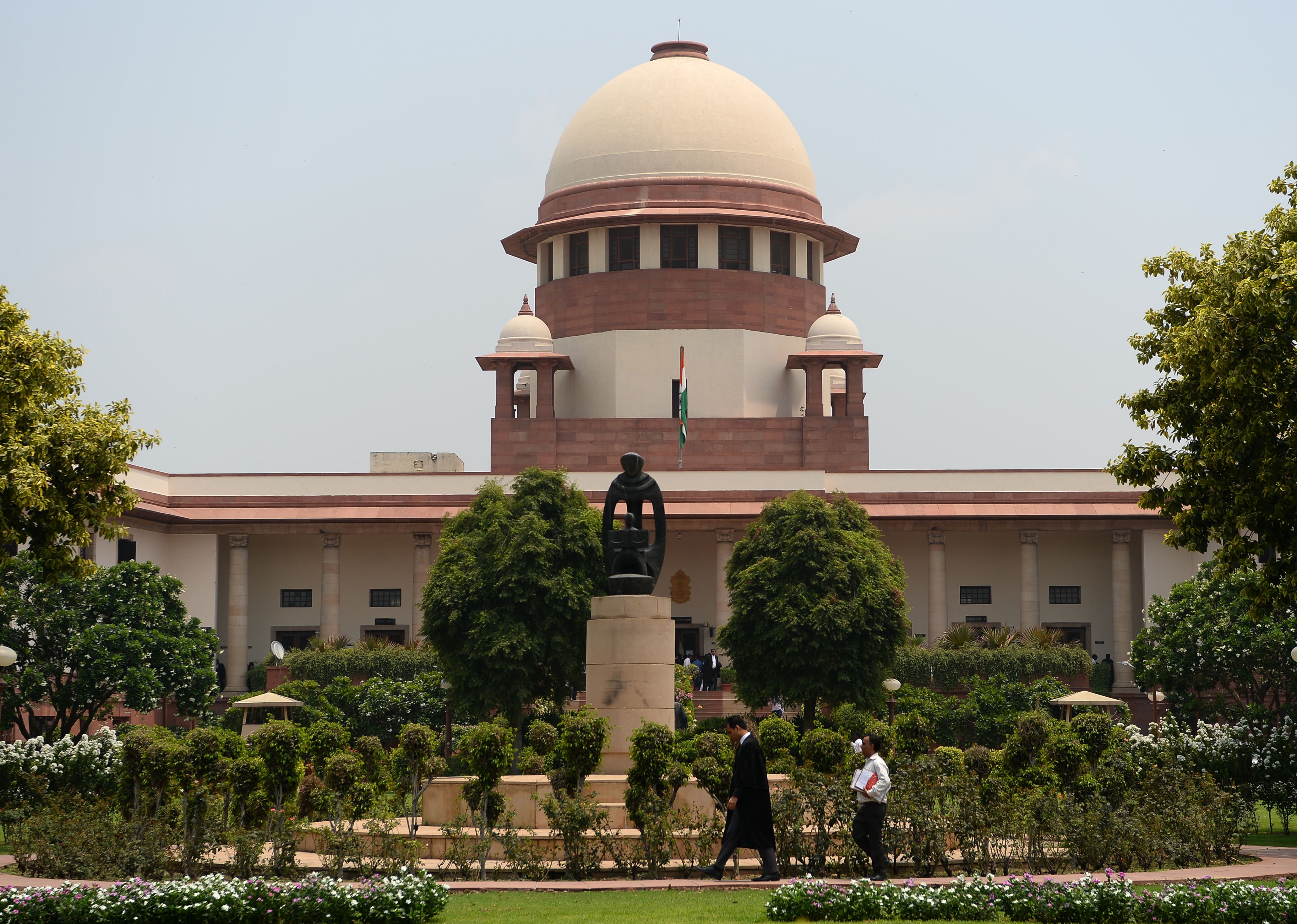India’s Supreme Court hails intercaste and interfaith marriages as ‘the way forward’
Court says it would ‘hardly be a desirable social exercise’ for the family to alienate their children over marriage

India’s Supreme Court has hailed interfaith and intercaste marriages as potentially “the way forward” for society in statements that come at a time when such relationships are under legal assault in several states.
Underscoring the importance of an adult’s right to choose their partner, a two-judge bench said that the “consent of the family or the community or the clan is not necessary once two adult individuals agree to enter into a wedlock and that their consent has to be piously given primacy”.
The comments from the top Indian court come after the populous states of Uttar Pradesh and Madhya Pradesh passed controversial ordinances – widely referred to as “Love Jihad laws” – that activists say is being used to harass interfaith couples.
The Supreme Court was hearing a case of an intercaste marriage from the southwestern state of Karnataka, where the couple approached the court seeking protection from a criminal case lodged by the woman’s father. The parents of the woman had lodged a missing person complaint after the couple eloped.
Belonging to different castes, the couple had met in 2018 while training for their jobs in a college. They eloped in 2020 after the woman’s parents disapproved of their relationship.
The court observed that educated younger men and women were increasingly choosing their own life partner, a departure from earlier norms where families, as well as considerations like caste and religion, played a major role.
“Possibly, this is the way forward where caste and community tensions will reduce by such intermarriage but in the meantime, these youngsters face threats from the elders and the courts have been coming to [their] aid,” noted the judges.
Underlining “choice” as an inextricable part of “dignity,” the court said that “dignity cannot be thought of where there is [an] erosion of choice.”
“Such a right or choice is not expected to succumb to the concept of ‘class honour’ or ‘group thinking,’” they said.
The bench further noted that it would “hardly be a desirable social exercise” for the family to alienate their children only because they decided to marry outside their caste or community.
“We hope that the parents of petitioner no 1 (the woman) will have better sense and accept the marriage to re-establish social ties with their daughter and her husband. That, in our view, is the only way forward,” recorded the court in its order.
The top court also directed the police authorities to formulate guidelines and training programmes for its personnel to better handle “socially sensitive cases” so that couples can get due protection available to them under the law should the parents or relatives lodge criminal cases against them.
The court moved to quash the missing person complaint lodged by the woman’s parents.
Join our commenting forum
Join thought-provoking conversations, follow other Independent readers and see their replies
Comments


Bookmark popover
Removed from bookmarks